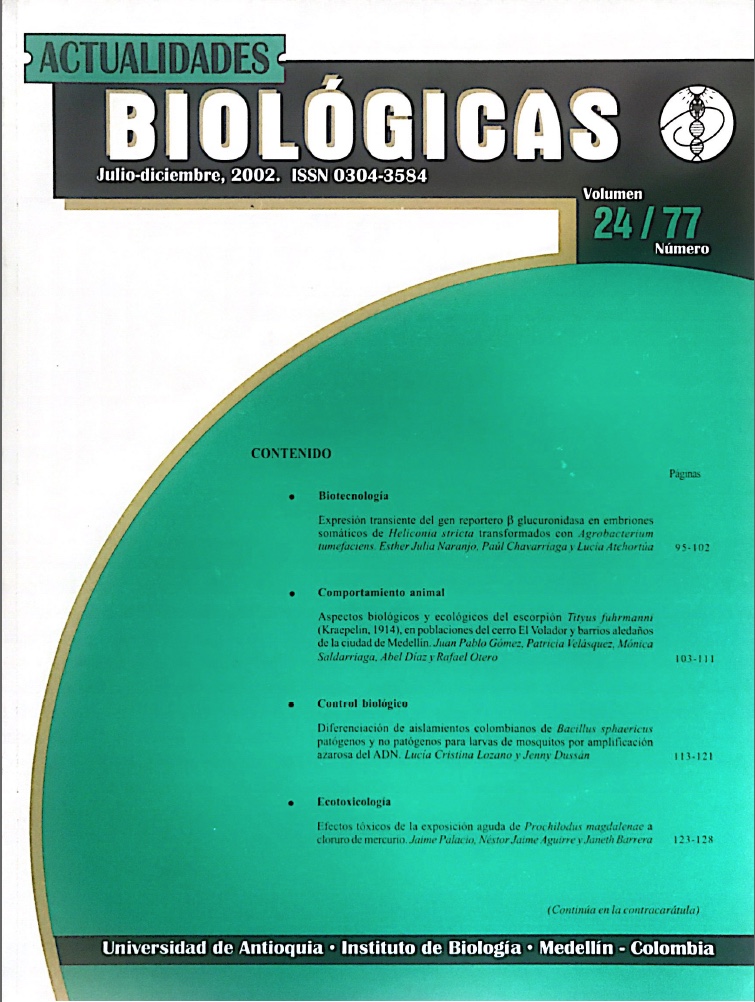Medición del daño genético inducido por el basuco en linfocitos humanos empleando la prueba de micronúcleos con citocalasina B
DOI:
https://doi.org/10.17533/udea.acbi.329539Palabras clave:
micronúcleos, basuco, efectos genotóxicos, células binucleadas, in vitro, citocalasina BResumen
El basuco es una mezcla compleja (droga psicoactiva) que se obtiene como derivado en el proceso de obtención de la cocaína. En esta investigación se empleó el basuco (pirolisado) para medir el daño genético inducido en linfocitos humanos, ya sea quiebre cromosómico o pérdida total de cromosomas, mediante la prueba de micronúcleos (MN). Linfocitos humanos (sangre total) de un donador joven, sano y no fumador, fueron empleados para detectar MN en células binucleadas después del tratamiento in vitro con tres concentraciones de basuco disueltas en agua destilada (0.92, 7.40 y 59.00 μg/ml), seleccionadas por pruebas de citotoxicidad (índice mitótico y tiempo promedio de generación celular). Se incluyeron los controles negativo (agua destilada) y positivo (mitomicina C, 50 μg/ml). Las células tratadas mostraron una diferencia significativa en el número de MN/célula binucleada con respecto al control (F = 10.37, P < 0.005) y se observó una clara relación dosis-efecto. Esto implica que el basuco es una mezcla compleja potencialmente genotóxica. Otras pruebas mutagénicas deben ser realizadas, especialmente en sistemas in vivo y en monitoreo de poblaciones humanas expuestas al basuco. Los resultados de esta investigación son útiles para prevenir a la población en riesgo expuesta a esta droga.
Descargas
Descargas
Publicado
Cómo citar
Número
Sección
Licencia
Los autores autorizan de forma exclusiva, a la revista Actualidades Biológicas a editar y publicar el manuscrito sometido en caso de ser recomendada y aceptada su publicación, sin que esto represente costo alguno para la Revista o para la Universidad de Antioquia.
Todas las ideas y opiniones contenidas en los artículos son de entera responsabilidad de los autores. El contenido total de los números o suplementos de la revista, está protegido bajo Licencia Creative Commons Reconocimiento-NoComercial-CompartirIgual 4.0 Internacional, por lo que no pueden ser empleados para usos comerciales, pero sí para fines educativos. Sin embargo, por favor, mencionar como fuente a la revista Actualidades Biológicas y enviar una copia de la publicación en que fue reproducido el contenido.












